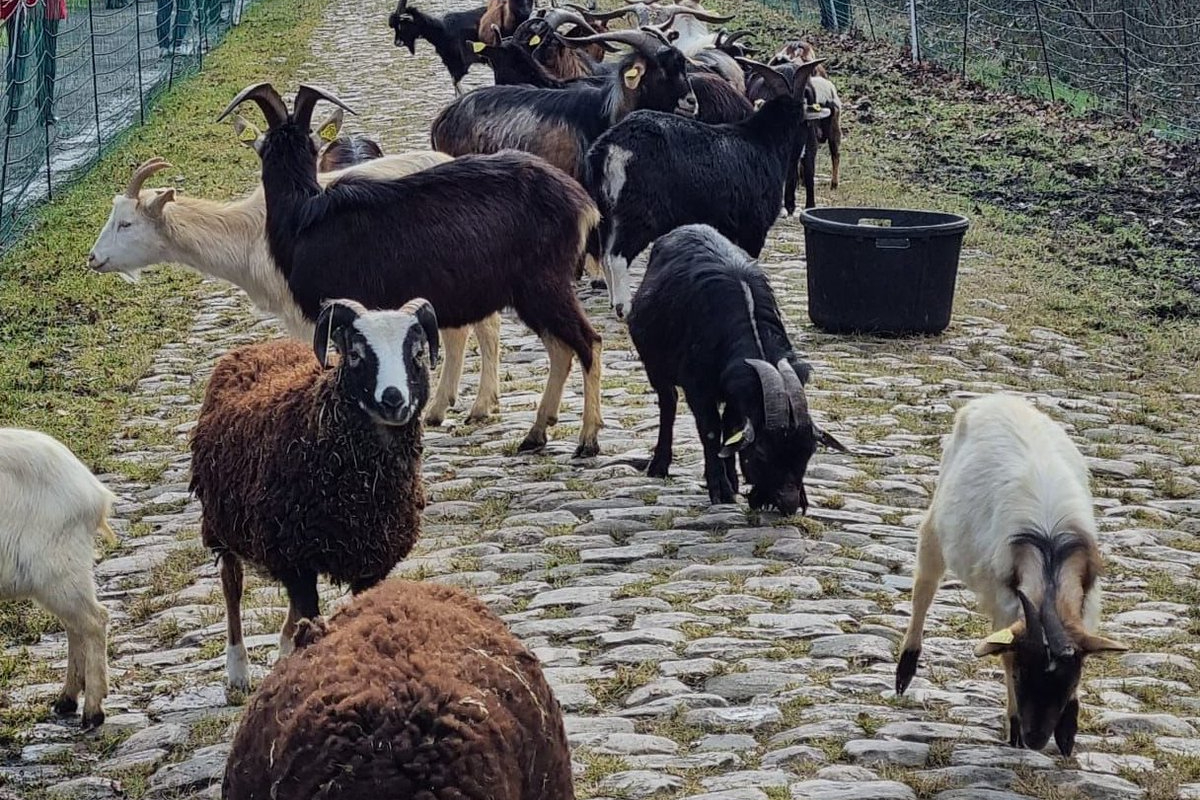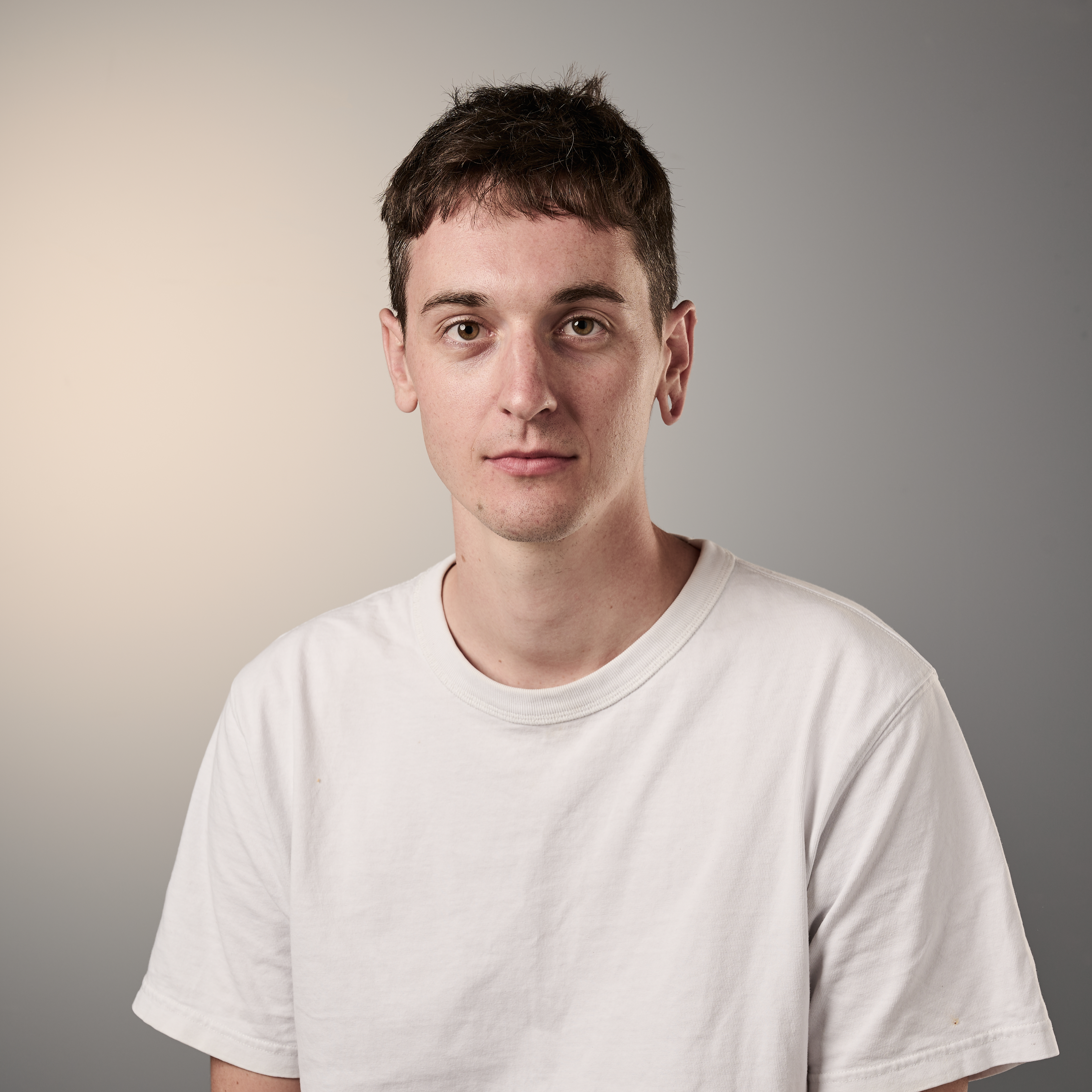Why goats are helping ready Paris-Roubaix's cobbles for spring
Cared for by a local charity, a herd of goats are enjoying their new duties in the Forest of Arenberg


The latest race content, interviews, features, reviews and expert buying guides, direct to your inbox!
You are now subscribed
Your newsletter sign-up was successful
This piece was first published in March 2023. The goats have returned for 2024.
It’s one of cycling’s most famous, and feared, cobbled sectors, but right now Paris-Roubaix’s iconic Forest of Arenberg is but a calm idyll for grazing animals.
With names like Ginette and Caouette, a herd of goats, around 40 in size, has descended on the road, tasked with trimming back the grass in time for the race on 9 April.
“This is the first time we’ve used this method,” ASO’s race designer Thierry Gouvenou told Cycling Weekly. “During Covid, we realised that the grass in the Forest of Arenberg was growing back really quickly, so we said we needed to find solutions. Why not eco-grazing?”
If you’re not familiar with eco-grazing, the concept is simple. Rather than using weed killer or industrial-sized lawn mowers, a drove of duty-bound herbivores are employed to maintain large green spaces. In this instance, it’s Poitou goats.
“We got in touch with a local charity, one that helps people in need to find a job, who has a large herd of goats and sheep,” Gouvenou explained. “Every day, the charity has brought them to the Arenberg to help mow the lawn.”
The charity in question is Espoir Avenir, based some 60km south of Roubaix, which offers work experience to those affected by the region's high unemployment rate.
The latest race content, interviews, features, reviews and expert buying guides, direct to your inbox!
Though it began at the start of February, the Arenberg project has been in the works for well over a year. In early 2022, ASO met with local representatives, the forestry commission and the Amis de Paris-Roubaix - the group in charge of the upkeep of the cobbles - to decide how to manage the grass in the forest.
Goats, it turns out, weren’t their first choice. “We tried sweeping, using fire to burn the grass away and trailing a giant brush from behind a tractor,” Gouvenou said. “The problem with the brush is that it cleans too deeply, and the riders complained about it being dangerous because their tyres would go between the cobblestones.
“Depending on how much the grass grows back, the goats will return once, twice, maybe three times over the course of the year."
Not only are the animals the most cost-effective option, they also enjoy their new duties. “The shepherd said that the goats are happy to go on their day trips to the Arenberg," Gouvenou said. "Their usual outings are to the sides of busy roads, where there’s loads of noise."
Parce que @parisroubaix ne sera jamais Wimbledon, des chèvres nettoient la trouée d'Arenberg depuis 1 mois.Espoir Avenir. @WallersArenberg #cd59 pic.twitter.com/afHtEQDnSVMarch 15, 2023
Currently, the herd is focused on the first 900 metres of the 2.3-kilometre cobbled stretch. There, they'll continue grazing until the beginning of April, just before the teams arrive and begin their course recons.
Speaking to Cycling Weekly, Amis de Paris-Roubaix president François Doulcier explained that the goats won't be needed for other parts of the route.
“The issue with the Arenberg is that there are no cars that go through there,” Doulcier said. “It’s the only sector where traffic is prohibited outside of race day. It’s also very dark and humid. All these conditions mean the grass grows back quickly.
“We wanted to open up the Forest of Arenberg to one-way traffic a month ahead of the race, but the council refused.”
While he’s a fan of the initiative, Doulcier admitted that he hasn’t yet been to see the herd of goats. "There's still a lot to do elsewhere," he said. The work of the Amis, like the goats', will run right up to the week before the race, when they'll retrace the farm tracks with a road sweeper - "like the ones you see in town centres" - for one final tidy of the cobbles.
With just over three weeks to go, the pressure is on to get the route ready. Have the goats been a helping hand? "At the moment, it's too early to say," Doulcier said, "but it certainly doesn't hurt to try".

Tom joined Cycling Weekly as a news and features writer in the summer of 2022, having previously contributed as a freelancer. He is fluent in French and Spanish, and holds a master's degree in International Journalism. Since 2020, he has been the host of The TT Podcast, offering race analysis and rider interviews.
An enthusiastic cyclist himself, Tom likes it most when the road goes uphill, and actively seeks out double-figure gradients on his rides. His best result is 28th in a hill-climb competition, albeit out of 40 entrants.